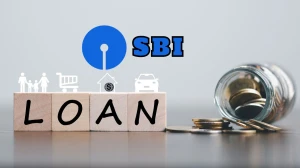
What is a Reverse Mortgage? How Does Reverse Mortgage Work?
A reverse mortgage allows homeowners aged 62 and older to access a portion of their home equity while continuing to live in their homes.
by Kowsalya
Updated Nov 29, 2023
On This Page
What is a Reverse Mortgage?
A reverse mortgage is a financial option for homeowners aged 62 and older to convert home equity into cash without monthly mortgage payments. Payments come from the lender, and the loan becomes due when the borrower sells, moves, or passes away.
Types include HECM, jumbo, and proprietary reverse mortgages. Qualification requires age 62+, homeownership, and HUD-approved counseling. Costs include fees and mortgage insurance. Understanding the details is crucial for informed decision-making.
How Does Reverse Mortgage Work?
A reverse mortgage is a financial tool available to homeowners aged 62 and older, allowing them to tap into their home equity without making monthly mortgage payments. Instead of the homeowner paying the lender, the lender makes payments to the homeowner in the form of a lump sum, fixed monthly payments, or a line of credit.
The loan, including interest, becomes due when the borrower passes away, moves out permanently, or sells the home. The homeowner retains the title to the home, and federal regulations prevent the loan amount from exceeding the home's value.
Reverse mortgages can provide seniors with much-needed cash, but their complexity and costs require careful consideration. The loan proceeds are not taxable, and the Consumer Financial Protection Bureau warns against potential scams targeting vulnerable seniors.
Elevate your Mortgage experience with MarketsHost. Our team of experts is here to guide you every step of the way, ensuring you make a well-informed decision when it comes to your mortgage.
What is the Reverse Mortgage Requirement?
The Reverse Mortgage Requirement stipulates that eligible homeowners, aged 62 or older, can access this financial option by meeting criteria such as age qualifications, property ownership, and occupancy. To meet the Reverse Mortgage Age Requirement and initiate the process, follow these steps:
- Ensure that the primary homeowner is 62 years or older, meeting the age requirement set for reverse mortgages. Some lenders may offer options for individuals as young as 55.
- Confirm that the property is owned outright or that a significant portion of the mortgage has been paid down, typically at least half.
- The property must be occupied as the primary residence of the homeowner.
- Demonstrate the financial capability to continue payments for property taxes, homeowners insurance, and homeowners association dues.
- Participate in an information session provided by a U.S. Department of Housing and Urban Development (HUD)-approved reverse mortgage counselor. This step is particularly crucial for those seeking a Home Equity Conversion Mortgage (HECM).
- Research several lenders to choose the one that best fits your needs.
- Complete and submit a formal application to the chosen lender.
- Fulfill the mandatory counseling session requirement.
- Upon approval, select the preferred disbursement method for receiving funds, which can include lump-sum payments, monthly payments, a line of credit, or a combination.
- Once the process is complete, receive the funds from the reverse mortgage.
Can You Get a Reverse Mortgage on a Manufactured Home?
Yes, it is possible to obtain a reverse mortgage on a manufactured home, but there are specific requirements set by the Department of Housing and Urban Development (HUD) that must be met.
These guidelines ensure that the manufactured home qualifies for a reverse mortgage. Meeting these requirements is essential for homeowners looking to leverage their home equity through a reverse mortgage.
Read More>>How Do You Pay Back a Reverse Mortgage
What are the Pros and Cons of Reverse Mortgage?
Pros of Reverse Mortgage
- Provides non-taxable income for homeowners aged 62 or older.
- Allows seniors to stay in their homes instead of moving.
- Money received from a reverse mortgage is considered loan proceeds, not taxable income.
- The loan balance can't exceed the home's value; it's non-recourse financing.
- Heirs can sell the property, repay the debt, refinance, or let the lender assume the property title.
Cons of Reverse Mortgage
- Associated costs include lender fees, mortgage insurance premiums, and closing costs.
- Interest on a reverse mortgage is not tax-deductible until the loan is paid off.
- May impact eligibility for Medicaid and Supplemental Security Income.
- Borrowers are still responsible for property taxes, insurance, and maintenance.
- Repayment or surrender of the home can create complications for heirs.
What is a Reverse Mortgage - FAQs
1. What is a reverse mortgage?
A reverse mortgage is a financial product designed for homeowners aged 62 and older, allowing them to access a portion of their home equity while still living in their home.
2. How does a reverse mortgage work?
A reverse mortgage enables homeowners to convert a portion of their home's value into cash without selling the property or moving out.
3. Can you get a reverse mortgage on a manufactured home?
Yes, but specific Department of Housing and Urban Development (HUD) requirements for manufactured homes must be met to qualify for a reverse mortgage.
4. What are the pros of a reverse mortgage?
Provides non-taxable income, allows aging in place, money isn't taxable, protects against balance exceeding home value, and offers options for heirs.
5. What are the cons of a reverse mortgage?
Costs include fees and insurance, interest isn't tax-deductible until loan payoff, the potential impact on benefits eligibility, ongoing home expenses, and complications for heirs during repayment or surrender.




